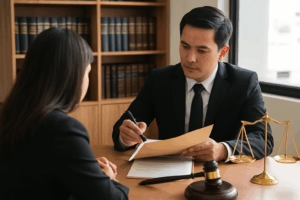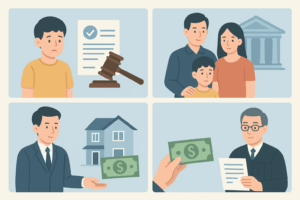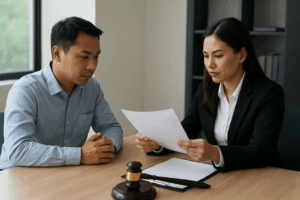Thailand Family Law: Navigating the Complexities of Relationships and Rights
Thailand, renowned for its breathtaking landscapes and unique culture, boasts a Thailand Family Law framework deeply rooted in tradition yet continuously adapting to contemporary societal demands. The intricacies of Thailand’s family law, encompassing a broad spectrum of relationships, rights, and obligations, demand close attention. For those entangled in family affairs in the Kingdom, a profound grasp of these nuances becomes imperative. This guide strives to elucidate the critical facets of Thailand’s family law, offering a glimpse into the blend of traditional values, individual rights, and legal procedures.
1. Marriage in Thailand
Traditional Thai weddings are grand ceremonies. However, for a marriage to be legally recognized in Thailand Family Law, it must be registered at a local district office, commonly known as ‘Amphur’ or ‘Amphoe.’ Both participants should be at least 17 years of age, not immediate relatives, and void of specific prohibitive circumstances.
- Prenuptial Agreements : Accepted in Thailand Family Law, these contracts outline the management and division of assets in case the marriage concludes. Such agreements need registration during the marriage ceremony to hold legal weight.
2. Rights and Responsibilities in Marriage
Under Thailand Family Law, assets gained during the marriage are typically divided equally. Conversely, assets possessed prior to the union remain distinct unless explicitly merged as marital property.
3. Divorce Proceedings
Divorce in Thailand can either be ‘consensual’ (agreed upon) or ‘contested’ (based on specific reasons like infidelity or extended separation) as per Thailand Family Law.
4. Parental Rights and Child Support
In Thailand Family Law, both parents inherently share equal rights over their offspring in the absence of court directives or mutual agreements.
5. Adoption
Both childless couples and single individuals are eligible to adopt in Thailand as stated in Thailand Family Law. A thorough vetting process ensures the child’s best interests are preserved.
6. Legitimization of Children
For children born to unmarried parents, Thailand Family Law deems them as illegitimate. However, subsequent marriage of the parents or certain legal processes can legitimize the child.
7. Inheritance Laws
In Thailand Family Law, while drafting a will isn’t obligatory, it is recommended. In its absence, Thai statutory rules govern the inheritance distribution.
8. Domestic Violence Protections
Over the years, Thailand Family Law has progressively amplified legal safeguards against domestic abuse. The Protection of Victims of Domestic Violence Act furnishes avenues for protective orders and legal redress
Conclusion
Thailand’s family law, a component of Thailand Family Law, is a blend of traditions, rights, and societal standards. For those venturing into family matters in the Kingdom, understanding and seeking expert legal guidance is crucial.
Contact : Siam Center Law Group by calling +66(0) 2 648 5041, +66(0) 2 648 5042





